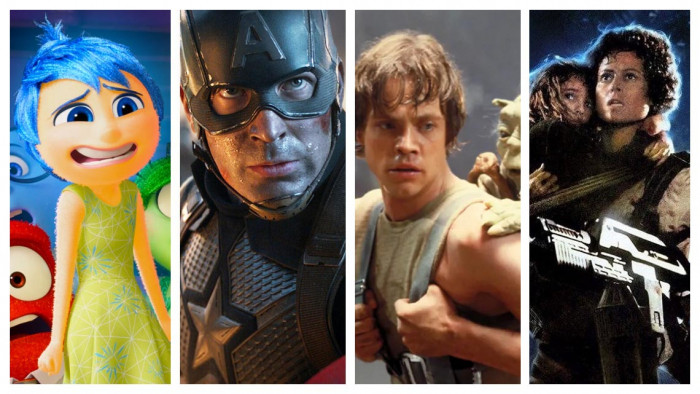Childish Gambino has been accused of stealing 'This is America' from an unknown rapper
Jase Harley has now officially responded, while Gambino's manager has reacted furiously


It was one of the most talked-about releases of the year so far: when Childish Gambino - aka actor, director and general renaissance man Donald Glover - released ‘This is America’ on 5 May, it instantly went viral, fuelled by its incredibly powerful video.
At the time of writing it’s racked up 300 million views on YouTube and 154 million plays on Spotify and it led to a thousand thinkpieces trying to decode the meaning of the lyrics and the visual elements of the video.
But now, shockwaves are rippling across the hip hop community as another song has surfaced which bears an uncanny resemblance to the track: namely, ‘American Pharaoh’, by the rapper Jase Harley.
It was originally released in 2016 on the album Free Pxrn: The Memoir of an American Heathen, and currently has just 12,000 Spotify plays, while Harley has only around 4,000 Twitter followers.
Perhaps calling Harley unknown is to do him a disservice - he has a track, ‘Between The Lines’, which is approaching 3 million Spotify streams - but his last release, ‘Boomerang’, a month ago, has just 1,200 Spotify streams.
So how similar are they? Well, take a listen for yourself.
Read more: Lana Del Rey vs Radiohead and 23 others that (allegedly) rip off other songs
Without doubt, there are huge musical similarities between the tracks, deliberate or otherwise.
’American Pharoah’ opens with a similar choral/hymnal refrain as ‘This is America’, both melodically, stylistically and thematically. Meanwhile, when the verse drops, Harley’s flow and themes are virtually identical to Gambino’s.
Both tracks follow an identical structure, switching between the choral chorus, and rapped verses.
The only real production difference is that the bassline of ‘This is America’ is an octave lower, giving the track more low end presence.
Harley does switch between a triplet flow and a more traditional flow in his verses, while Gambino maintains triplets virtually all the way through his - but the killer opening sections of each verse are extremely similar.
’American Pharoah’ begins: ‘I’m young and I’m black in America / They try to attack and embarrass us’, while ‘This is America’ kicks off with: This is America / Don’t catch you slippin’ up’
Meanwhile both songs explore themes of race and police brutality; Harley’s track containing the lines: ‘Police killed my best friend, they shot him dead / I do not forgive, I do not forget’ and Gambino’s featuring the lyrics, ‘Police be trippin’ now (woo) / Yeah, this is America (woo, ayy) / Guns in my area (word, my area) /I got the strap (ayy, ayy) / I gotta carry ‘em’.
’This is America’ is credited as being written and produced by Donald Glover and Ludwig Göransson only, with Glover solely credited with the lyrics.
Naturally, enterprising Twitter users have already begun putting the visuals for Glover’s track on top of Harley’s recording.
We have reached out to Glover for a response but none has been forthcoming yet - however, Gambino’s manager, Fam Udeorji, refuted the claims in a now-deleted tweet. Fortunately, as this is the internet, someone screenshotted it:

Harley himself has now issued an official statement via Instagram:
While we admire Harley’s attitude, it surely seems only fair that - if it turns out that Glover did indeed ‘take inspiration’ from his track - he should get paid and credited properly.
However, Mark Stafford of Lee & Thompson, who’s worked as a music lawyer for 15 years, believes that - should he decide to go down that route - Harley would have a tough time winning a case.
“I think there are some similarities between the songs but I wouldn’t go so far as to say that there is substantial copying, which is what would be required to succeed on a claim, in the UK at least.”
When asked what qualifies as ‘substantial copying’, Stafford explains:
“Well to get home on a copyright infringement claim in the UK, you’d need to show that a substantial part of the original work has been copied in the allegedly infringing work. That would require evidence from an expert musicologist who would compare the two works and that evidence would then be relied upon at court. Obviously we don’t have that level of analysis here, but from a quick broad-brush comparison between the two songs, I think it would be difficult for the original copyright owner to succeed on an infringement claim.
“The ‘Blurred Lines’ decision in the States seems to have encouraged claims from rights holders alleging that their copyright has been infringed when really it’s just two similar sounding songs. The essence of popular music is that it takes inspiration from previous works – always has done, always will do.
“To go further than that and prove that copying has taken place, that’s a much higher threshold to reach. Whilst there are similarities between the two songs I don’t think a substantial part has been used so as to succeed on a claim in the UK.
“I wouldn’t go as far as to advise on the chances of success… there doesn’t appear to have been any copying of the lyrics for instance. Obviously there’s some similarity in the title – they both mention America but so do many songs, and the title is too short to attract protection in any event.
“This appears to have blown up online with fans noticing some similarities, but there doesn’t seem to have been any claim threatened by Jase Harley. He has said ‘This Is America’ may have been inspired by his song, but he isn’t alleging any infringement, at this stage at least.”
Meanwhile, Kurt Dahl, a lawyer at Murphy & Company LLP told us:
“My initial reaction: there are some definite similarities, mostly in the inflection and cadence of the vocal delivery. The subject matter is also quite similar. Musically there are some real differences and a few similarities.
And what would it take for Harley to win a case?
“Well, first and foremost: I am not a musicologist. Mr. Harley would need to hire an experienced entertainment litigator, who would then hire an experienced musicologist to analyze the similarities and differences between the songs and provide a professional opinion. However, Gambino’s lawyer would do the same, and then it’s just a question of fact for either a judge or jury to assess. In order to succeed with a plagiarism suit, Harley must prove that Gambino had access to the original song. I don’t know how many YouTube views Harley’s song had before Gambino’s song came out, but that would be a factor that will either help or hurt the argument that Gambino somehow heard the song and then (knowingly or otherwise) copied it. If he can prove access, the next step is proving that substantial similarity exists between the two songs. That is where the musicologist comes in.
“Gambino’s team will argue that the subject matter is too common these days to be unique, and the same goes for the inflection and cadence of the vocal delivery. If they can show specific examples of other songs that are similar, this will weaken Harley’s claim of plagiarism.
What about the chance of success?
“That is tough to say. These things often end with an out of court settlement, assuming Harley’s lawyer can make a strong case for infringement, and Gambino’s team wants to make it go away. Ultimately, it costs a lot of money to go to court, and both sides will want to avoid spending that money. However, if Gambino can bear that financial burden easier than Harley, the case may not go anywhere. Sometimes plagiarism suits are David vs. Goliath in that way. If I were Harley I would hire a musicologist, assess if he actually has a strong case from a scientific point of view, and then decide to move forward or not from there, if finances permit.”
(Image: YouTube)








